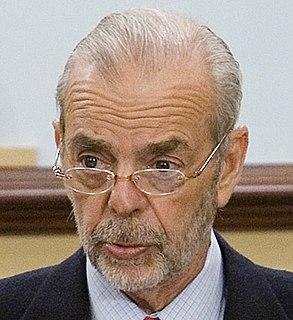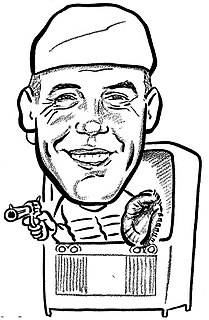A Quote by Peter Drucker
The leader sees leadership as responsibility rather than as rank and privilege.
Quote Topics
Related Quotes
Certainly polling is a tool for leadership. It's not a program for leadership. And you can abuse a tool. You can overuse it. A leader who looks to the latest poll finding and says, "Well that's what I should do", that's not a very good leader. I mean that's someone who is not taking this poll and saying, "Well what am I gonna have to do to get public acceptance of my policies?" It's someone who is interested in their own election or re-election, and their own popularity rather than genuinely serving the public interest.
Often, in a given project team or network, one sees leadership roles shifting among various members at various times. Attempts to fit these into traditional views of "leader" and "follower" don't quite work. It's more like Twitter: the "leader" has "followers" - but the "followers" are empowered to alter the relationship unilaterally, and the "leader" must continually earn the consent of the "followers."
Character in many ways is everything in leadership. It is made up of many things, but I would say character is really integrity. When you delegate something to a subordinate, for example, it is absolutely your responsibility, and he must understand this. You as a leader must take complete responsibility for what the subordinate does. I once said, as a sort of wisecrack, that leadership consists of nothing but taking responsibility for everything that goes wrong and giving your subordinates credit for everything that goes well.
































